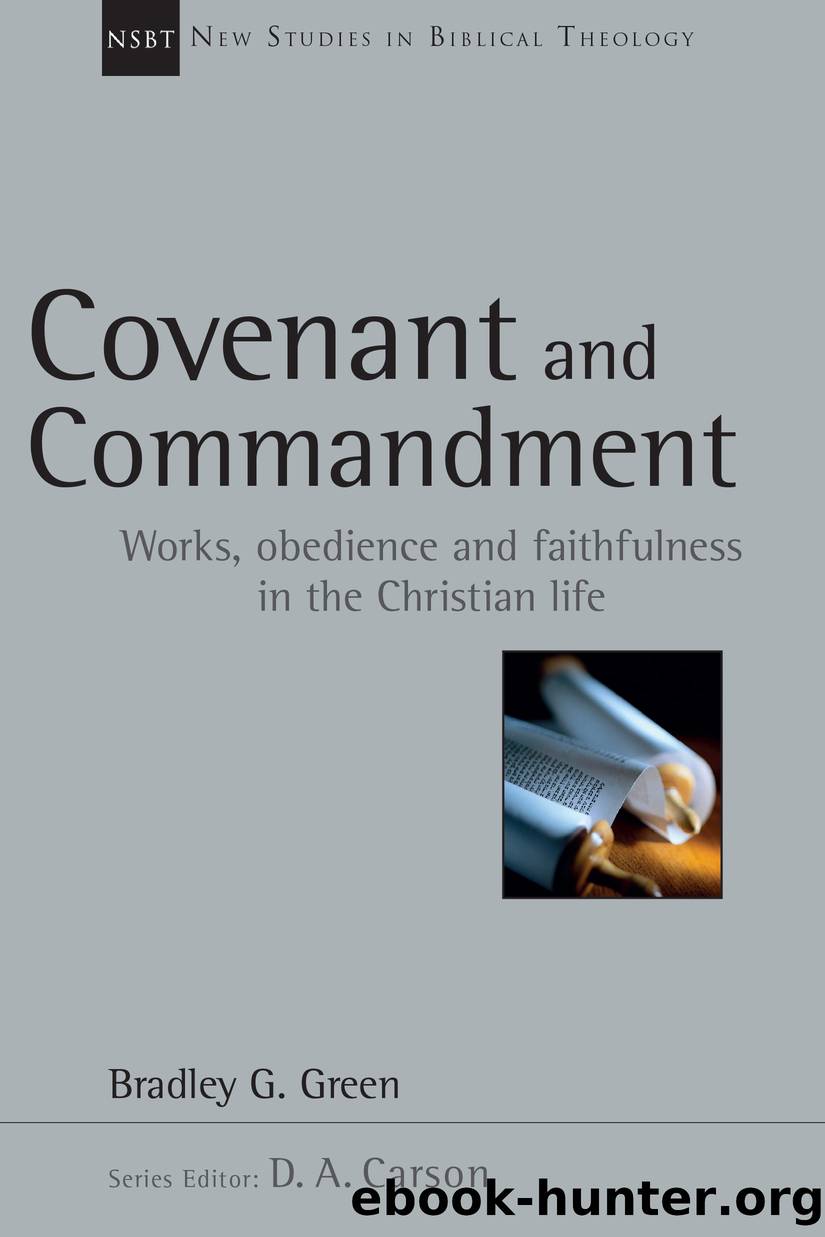Covenant and Commandment: Works, Obedience and Faithfulness in the Christian Life by Bradley G. Green

Author:Bradley G. Green [Green, Bradley G.]
Language: eng
Format: epub
Publisher: InterVarsity Press
Published: 2014-11-11T16:00:00+00:00
Key historical figures
Having looked at the key biblical texts, let us turn to see what wisdom might be gleaned from some of the key figures in the history of Christian thought. In this section we will briefly look at some older figures: John Calvin, John Owen, Jonathan Edwards and Geerhardus Vos. We will then turn to a few key contemporary scholars: Richard Gaffin, Simon Gathercole and Greg Beale. Before offering some summative comments, we will take an extended look at N. T. Wright on justification.
John Calvin, justification and works
Traditional evangelical theology has (rightly) affirmed the punctiliar and past tense nature of justification. We have been justified, and because of this justification can now stand in the presence of God. But there is also in the evangelical tradition a thorough wrestling with a future aspect of justification, and a judgment according to works. Given the shadow John Calvin casts over subsequent Protestant theology (including over what today is considered âbiblical theologyâ), it is appropriate to turn to him for a moment. It is worth noting that this is no inconsequential issue. Calvin warns, âIn the shady cloisters of the schools anyone can easily and readily prattle about the value of works in justifying men. But when we come before the presence of God we must put away such amusements!â188
As Calvin outlines his understanding of justification, there are two routes by which one might be justified: by faith or by works. Since no one can be justified by works, the only possible route to justification is justification by faith.189 And Calvin is adamant that one cannot forge some kind of faithâworks amalgam that together would justify: âfaith righteousness so differs from works righteousness that when one is established the other has to be overthrownâ.190
Calvin writes, âThough works are highly esteemed, they have their value from Godâs approval rather than from their own worth.â191 Here are the seeds of what Calvin explicates in following sections of the Institutes. Works are of value, but not in themselves. Similar to how Augustine could affirm that God âcrowns His own giftsâ, Calvin proceeds to argue that the value of works lies in Godâs approval of them. Indeed, in this same section he writes, âit is from Godâs beneficence that they are considered worthy both of the name of righteousness and of the reward thereofâ.192 Calvin is more pointed a bit later: âall human works, if judged according to their own worth, are nothing but filth and defilementâ.193
For Calvin, any works produced by the unconverted person spring from a sinful heart, and the works are in fact sins: âin men not yet truly sanctified works manifesting even the highest splendor are so far away from righteousness before the Lord that they are reckoned sinsâ.194 Indeed, âworks please him only when the person has previously found favor in his sightâ.195
For Calvin, any worth that can be ascribed to our works is linked to a personâs relationship to Christ. Thus, âsurely, no works of ours can of themselves render
Download
This site does not store any files on its server. We only index and link to content provided by other sites. Please contact the content providers to delete copyright contents if any and email us, we'll remove relevant links or contents immediately.
The Lost Art of Listening by Michael P. Nichols(6465)
Why I Am Not A Calvinist by Dr. Peter S. Ruckman(3767)
The Rosicrucians by Christopher McIntosh(3047)
Wicca: a guide for the solitary practitioner by Scott Cunningham(2703)
Signature in the Cell: DNA and the Evidence for Intelligent Design by Stephen C. Meyer(2497)
Real Sex by Lauren F. Winner(2467)
The Holy Spirit by Billy Graham(2409)
To Light a Sacred Flame by Silver RavenWolf(2351)
The End of Faith by Sam Harris(2282)
The Gnostic Gospels by Pagels Elaine(2023)
Nine Parts of Desire by Geraldine Brooks(2002)
Waking Up by Sam Harris(1954)
Heavens on Earth by Michael Shermer(1951)
Devil, The by Almond Philip C(1897)
Jesus by Paul Johnson(1882)
The God delusion by Richard Dawkins(1843)
Kundalini by Gopi Krishna(1822)
Chosen by God by R. C. Sproul(1755)
The Nature of Consciousness by Rupert Spira(1688)
